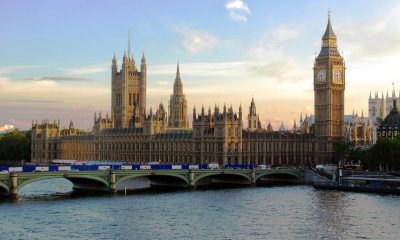Canada News
Manitoba Tory government accused of setting election rules in its favour

“It appears that the governing party is trying to muzzle voices that it doesn’t agree with,” union president Michelle Gawronsky said. (Photo: Michelle Gawronsky/ Facebook)
WINNIPEG –The next provincial election in Manitoba could look very different under proposed rules that critics say would limit voting by the poor, silence detractors and allow political parties – notably the governing Progressive Conservatives – to raise and spend more money.
The government on Monday introduced several changes it would like to see in election laws.
One would tighten restrictions on third-party advertising. Currently, unions, business and interest groups are not subject to advertising limits during election campaigns if their ads avoid targeting a specific candidate or party.
A bill now before the legislature would extend the restriction to any ads that took a position associated with any party or candidate. It would also cover a longer period – 120 days prior to the election.
The Manitoba Government and General Employees’ Union said Tuesday the bill seems aimed at silencing government critics.
“It appears that the governing party is trying to muzzle voices that it doesn’t agree with,” union president Michelle Gawronsky said.
“We understand the need for reasonable limits on advertising during the campaign period, but it’s hard to justify strict limits on issue-based advertising outside the campaign period.”
Royce Koop, who teaches political studies at the University of Manitoba, said unions would feel the brunt of the change because they run a lot of advertising in the lead-up to elections. In 2011, some unions ran television ads that touched on privatization concerns raised by the NDP, but without naming any political party.
“Unions are probably the most important third-party actors in this province,” Koop said.
While unions and interest groups would face stricter limits, political parties would see looser restrictions on advertising.
They are currently forbidden to spend more than $268,000 on advertising outside of a campaign period in an election year. The proposed change would enforce the cap to 90 days before a campaign begins. The rest of the year would be unrestricted.
Another section of the bill suggests raising the annual limit on how much money individuals can donate to politicians or parties – to $5,000 from $3,000.
Premier Brian Pallister has said that would bring Manitoba in line with other provinces and help all parties replace a per-vote subsidy that was brought in by the former NDP government and eliminated by the Tories.
“In taking away that subsidy, you have to give the political parties some means to raise their money,” he said.
The Tories have been outfundraising the NDP for years. They have built up a large cache while the NDP is still months away from paying off its 2016 election debt.
The Tories faced questions in the legislature Tuesday about another change that would tighten identification rules when voters cast ballots.
Voters now can confirm their identity by showing either one photo identification or two pieces of ID without photos. And if neither piece has a home address, they can sign a declaration as to where they live.
The proposed change would require, at a minimum, two pieces of identification that would include a voter information card mailed to their home address.
Josh Brandon, who is with a poverty advocacy group, said the requirement will hurt low-income earners and others who may move frequently or have intermittent housing.
“The people who have the most difficulty having access to the vote right now are low-income residents, youth and indigenous Manitobans,” said Brandon of the Social Planning Council of Winnipeg. “Putting ID restrictions on them will just make it more difficult.”
New Democrat justice critic Andrew Swan accused the government of suppressing the votes of vulnerable people. But Justice Minister Heather Stefanson said the changes mirror rules at the federal and municipal levels.





















